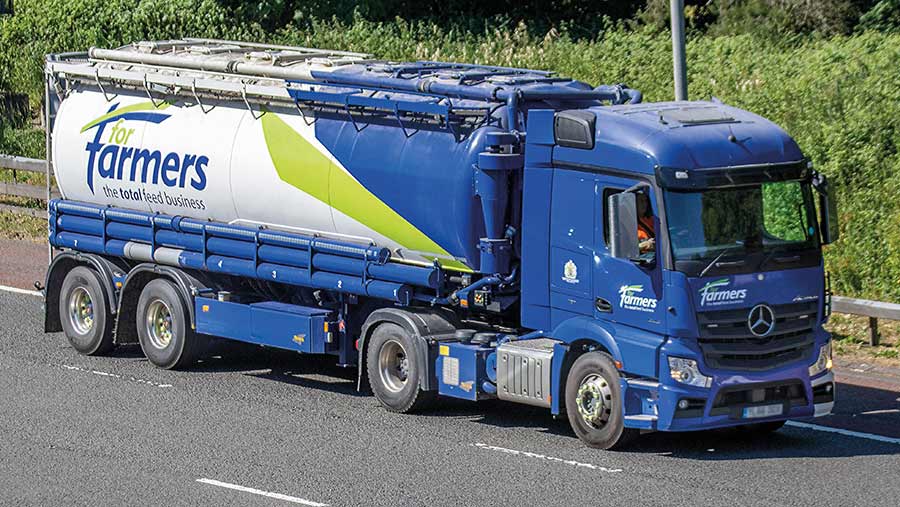Competition issues identified with ForFarmers and 2Agriculture merger
 © ZarkePix/Alamy Stock Photo
© ZarkePix/Alamy Stock Photo Livestock producers could face higher feed costs if a proposed merger between suppliers ForFarmers and 2Agriculture went ahead, the UK competition watchdog has said.
Dutch-owned ForFarmers and 2Agriculture, which is part of the Boparan Group, announced the proposed merger of its UK animal feed operations last July.
The plan covers 19 mills across the UK and is for a non-cash transaction, with the share split at 50.1% for ForFarmers UK and 49.9% for 2Agriculture.
However, the Competition and Markets Authority (CMA) was concerned about the potential impact on farmers and the public and ordered an investigation in October 2022.
See also: Competition authority to investigate ForFarmers UK and 2Agriculture merger
Phase one of that investigation has now been completed, with findings suggesting the deal raised competition concerns in East Anglia, north-west England and north Wales.
The businesses currently compete for customers within each of the areas that surround mills in Burston, Bury, Preston and Llay.
The CMA said the combined business would no longer face sufficient competition in these areas if the merger went ahead as it would mean farmers could have to pay higher prices for poultry feed, lower quality feed or receive poorer service standards.
The CMA added that the joint venture could unfairly favour Boparan’s chicken farming and processing businesses.
This could result in less choice for smaller chicken farmers and processors, who might rely on ForFarmers and Boparan for their feed.
Sorcha O’Carroll, senior director of mergers at the CMA, acknowledged that feed was the biggest expense faced by farmers when rearing chicken.
“With food prices already increasing and the wider cost-of-living crisis, it is vital that we don’t allow a reduction in competition between poultry feed suppliers.
“This could make the situation worse – both for farmers and shoppers at the checkout,” Ms O’Carroll said.
ForFarmers and Boparan were given five working days to submit proposals to address the CMA’s concerns.
The CMA will now assess these before it decides whether to progress to an in-depth phase two investigation.
